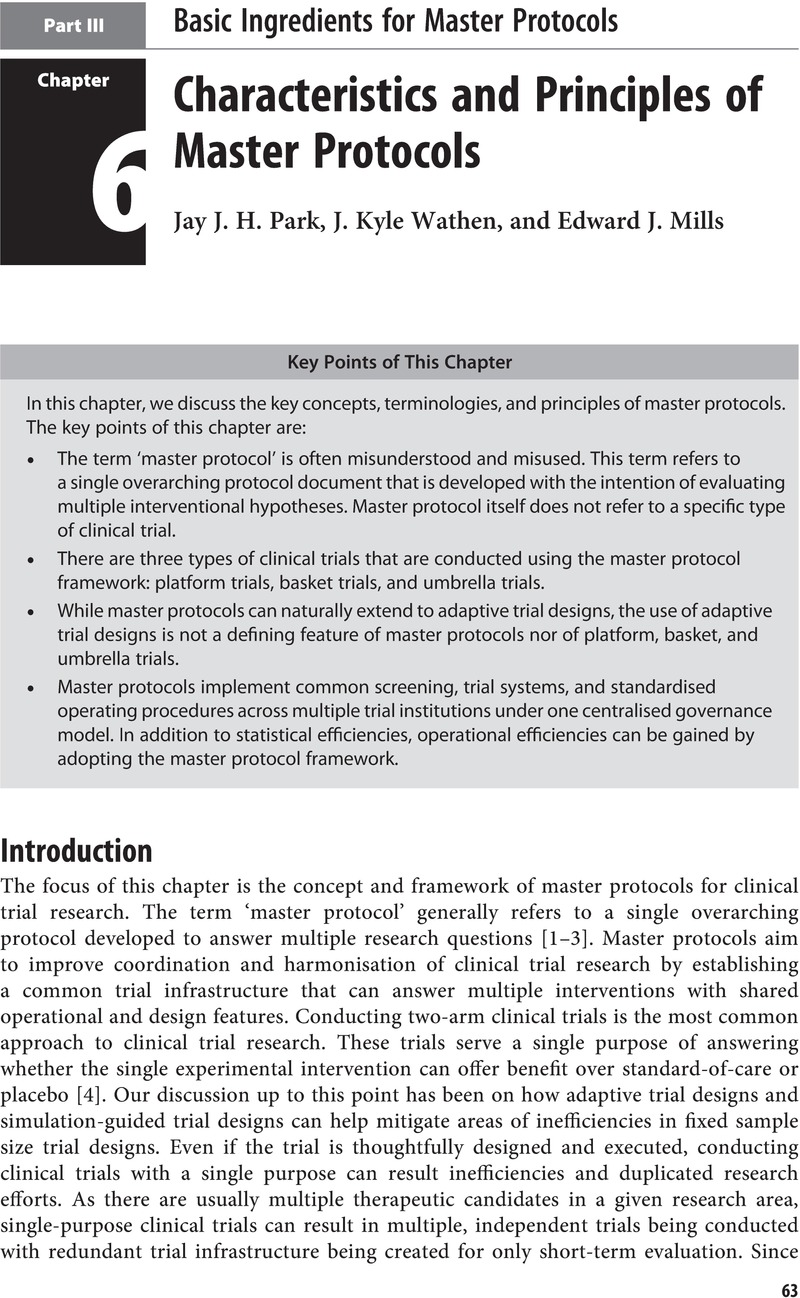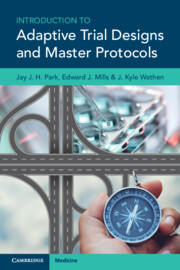Book contents
- Introduction to Adaptive Trial Designs and Master Protocols
- Introduction to Adaptive Trial Designs and Master Protocols
- Copyright page
- Content
- Preface
- About the Authors
- Part I Introduction and History of Clinical Trial Research
- Part II Basic Ingredients for Adaptive Trial Designs and Common Types
- Part III Basic Ingredients for Master Protocols
- Part IV Case Studies of Adaptive Trial Designs and Master Protocols
- Part V A Practical Guide to Adaptive Trial Designs and Master Protocols
- Index
- References
Part III - Basic Ingredients for Master Protocols
Published online by Cambridge University Press: 20 March 2023
- Introduction to Adaptive Trial Designs and Master Protocols
- Introduction to Adaptive Trial Designs and Master Protocols
- Copyright page
- Content
- Preface
- About the Authors
- Part I Introduction and History of Clinical Trial Research
- Part II Basic Ingredients for Adaptive Trial Designs and Common Types
- Part III Basic Ingredients for Master Protocols
- Part IV Case Studies of Adaptive Trial Designs and Master Protocols
- Part V A Practical Guide to Adaptive Trial Designs and Master Protocols
- Index
- References
Summary

- Type
- Chapter
- Information
- Introduction to Adaptive Trial Designs and Master Protocols , pp. 63 - 100Publisher: Cambridge University PressPrint publication year: 2023

